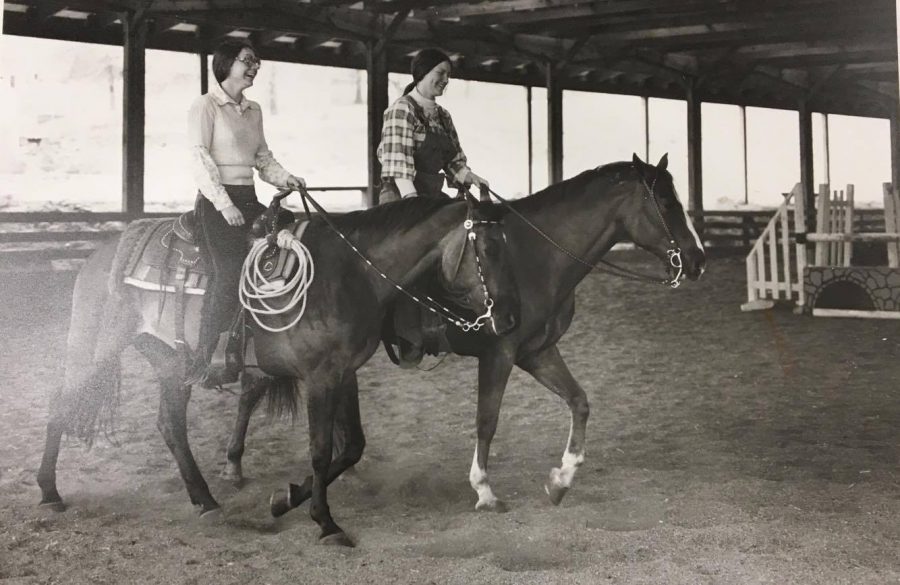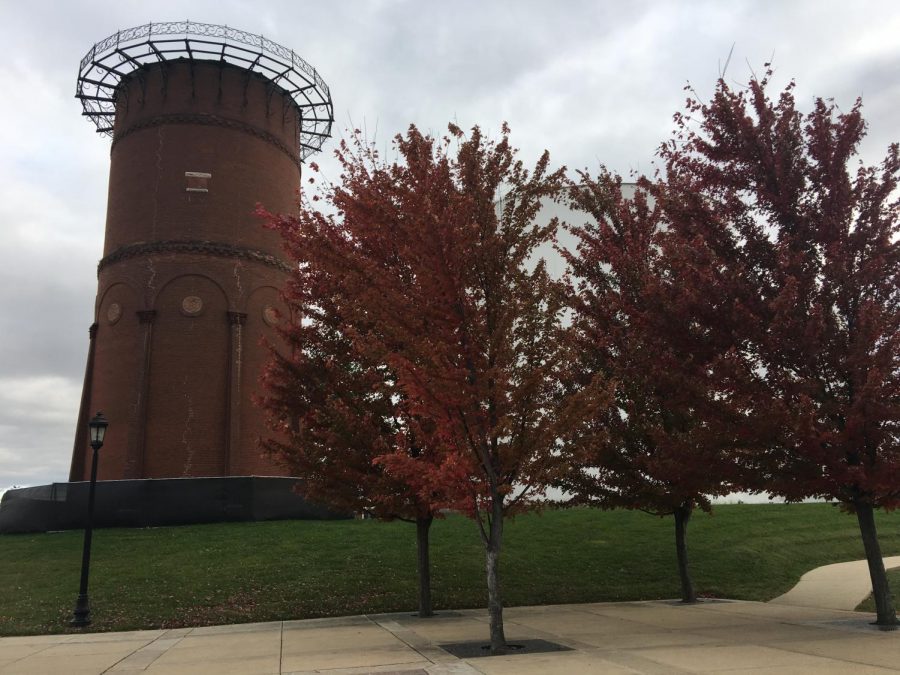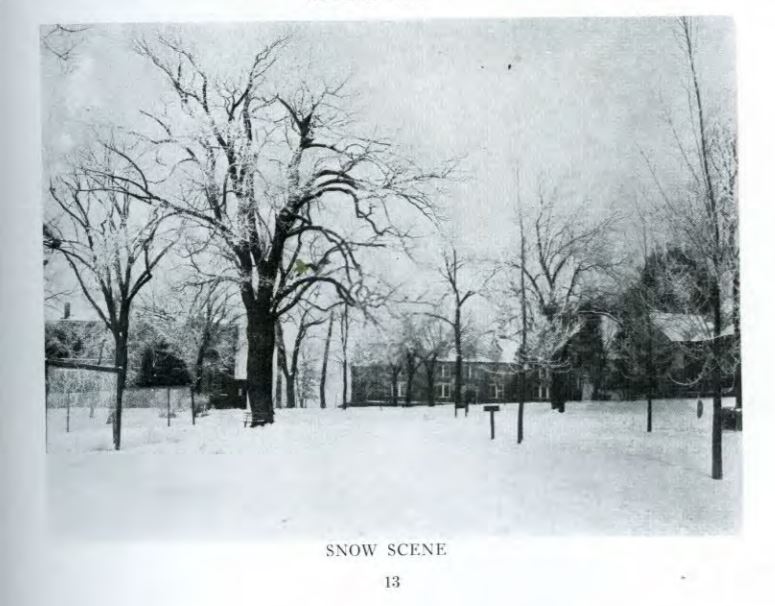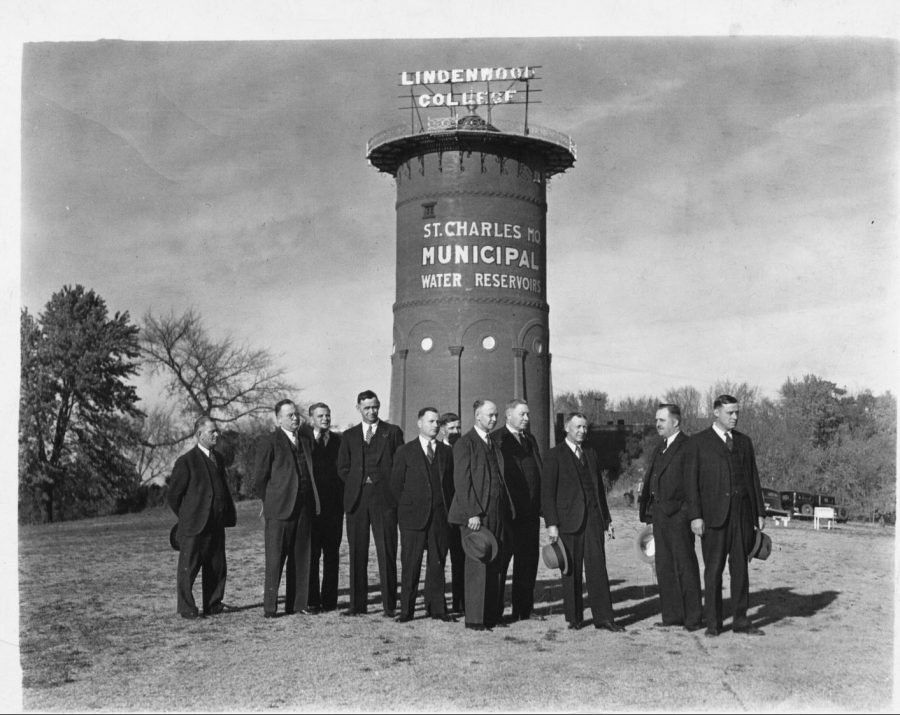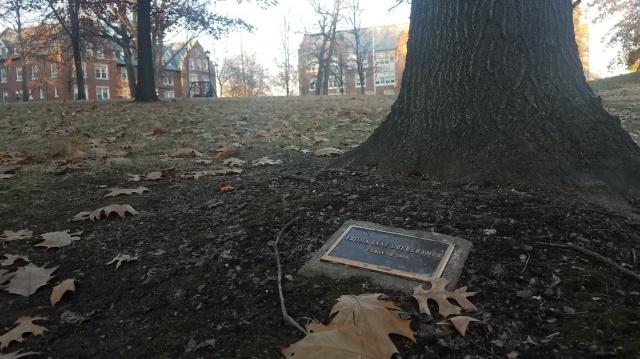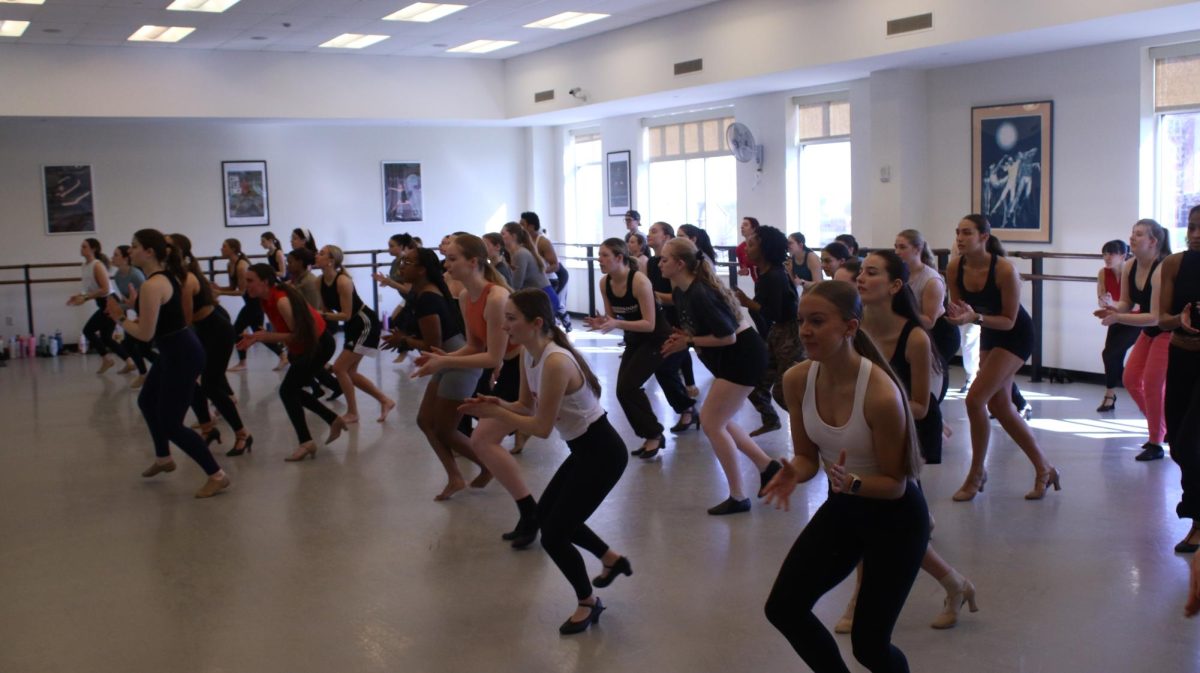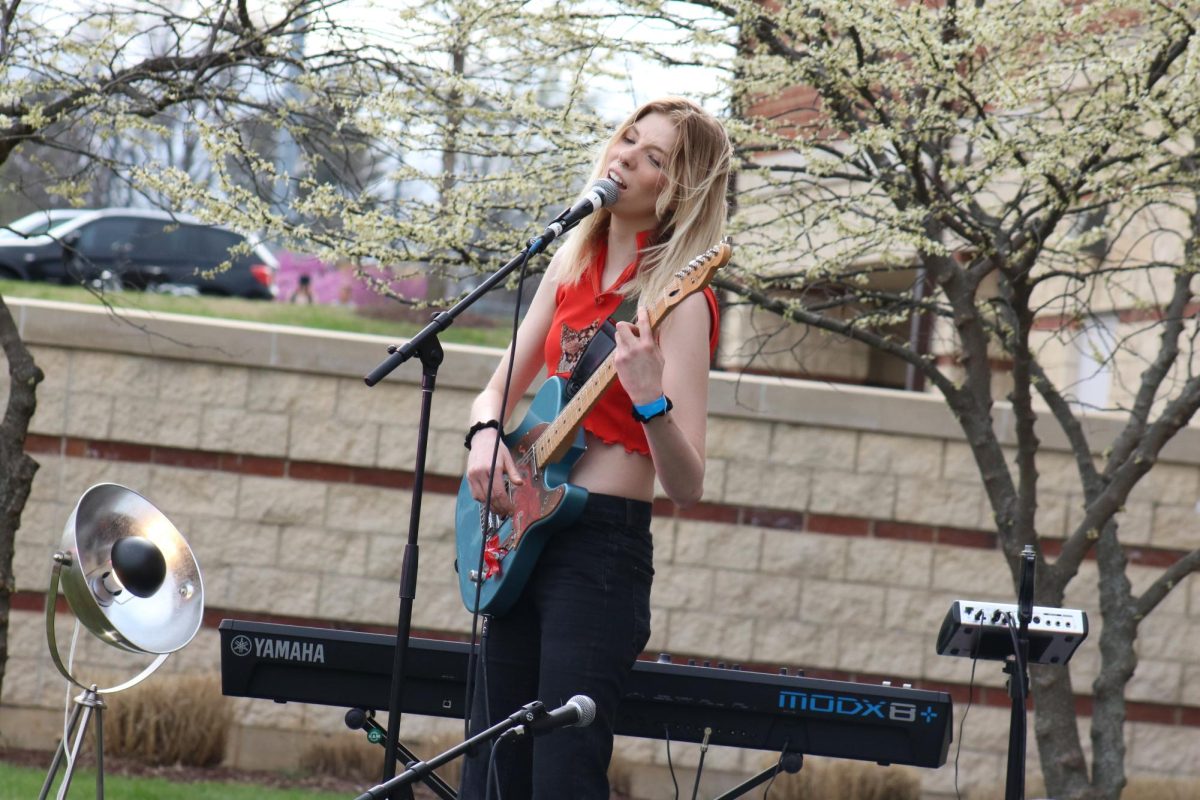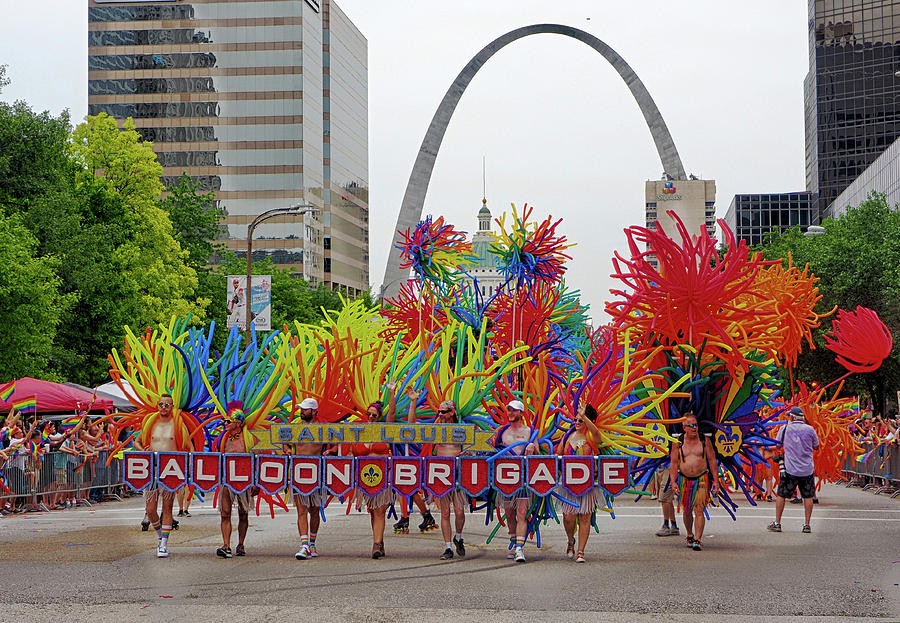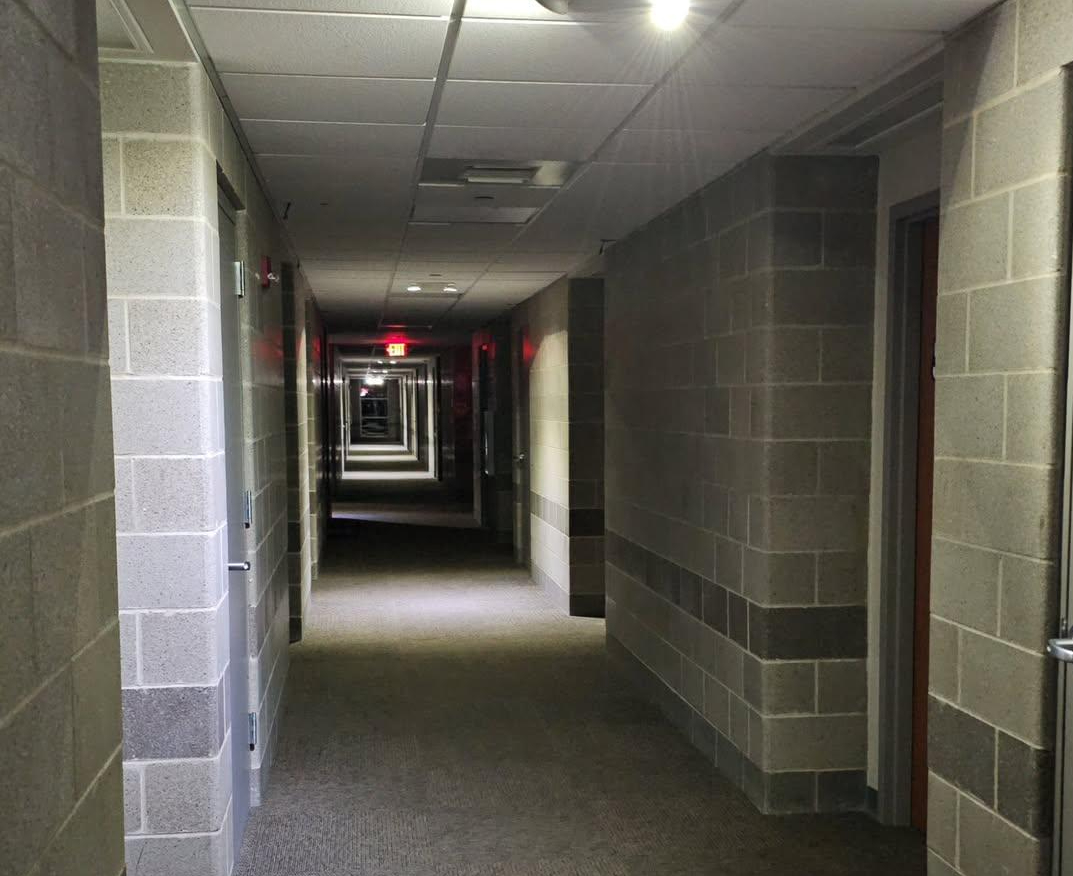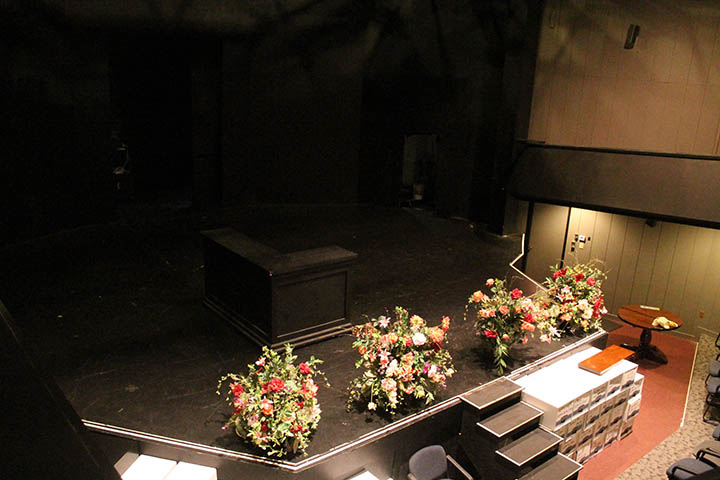
LU’s historic Jelkyl Theater in its current state after the announcement of its closing
Stephen Hawkes | Reporter
From Print [November 10, 2015] | Legacy
Jelkyl Theater, a longstanding staple of Lindenwood University, is set to become office space in the near future.
According to Public Relations Coordinator Chris Duggan, the plan is to convert LU’s former prime stage for entertainment “to a more usable space, because it has been used only very sporadically since the Scheidegger Center opened.”
This will not be the theater’s first major renovation. At one time it was not even a theater.
“Roemer Hall was completed in 1921; that’s when Jelkyl opened. But it wasn’t called Jelkyl,” Duggan said. “It was remodeled into its current state and named Jelkyl Theater in 1973.”
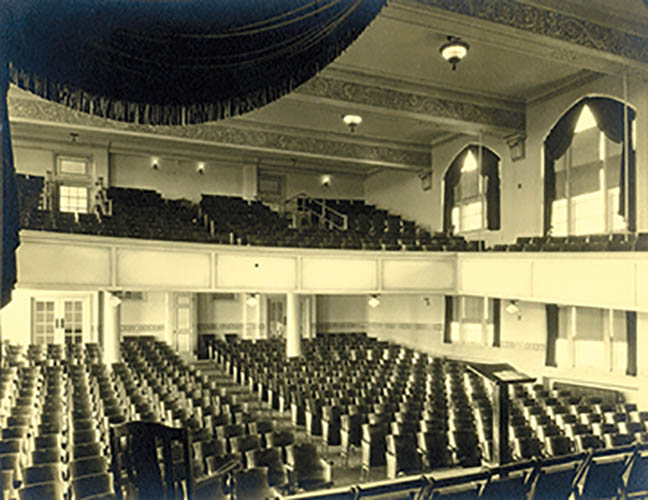
Jelkyl Theater in the 1920s, when it was known as Roemer Auditorium
According to Theatre Professor Donnell Walsh, “The space itself goes back to when Lindenwood was an all-girls school. It was the Roemer Auditorium.”
Even before 1973, the space saw its share of notable people. According to Lindenwood University archivist Paul Huffman, the space hosted several notable figures, from politicians such as Eugene McCarthy and Hubert Humphrey, to playwright Thornton Wilder and civil rights activist Dick Gregory. Even musician Billy Joel once graced its stage.
“[It was] just a few months before his first big album, when he became famous,” Huffman said. “The tickets for his show here at Lindenwood were a dollar a piece.”
According to the university’s archives, the theater takes its name from Ross Allen Jelkyl, a St. Louis native, theatre aficionado and friend of the school. Jelkyl donated a large sum of money for the theater, making the conversion of the space possible. The theater was not without its quirks, however. Walsh called it a “most peculiar space,” mentioning a trap door, walls that all but surrounded the stage and a sound system that would occasionally pick up the campus radio station during performances. Nevertheless, the show always went on.
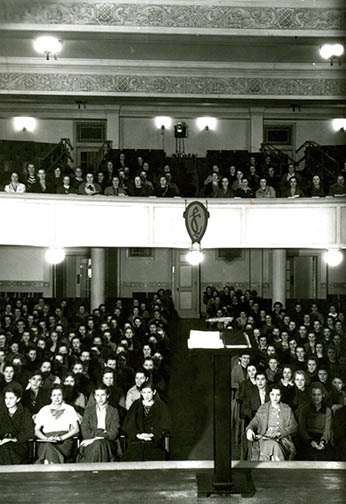
A view from the Jelkyl stage when LU was still an all-girls school
“We’ve done everything from ‘Oklahoma’ in there to turning it into a cave for a production of ‘The Illusion’, to ‘A Christmas Carol’,” he said. “Everything we do in Scheidegger, we used to do in Jelkyl. The one thing I think it taught the students is that there is no such thing as a perfect theater space… Even though we have this beautiful facility in Scheidegger, everything still has to be adjusted and you have to make rational decisions about how you’re going to use the space and use people’s time.”
For Walsh and many others, the passing of the theater will not be without fond memories.
“We were very grateful for Jelkyl for as long as we had it,” said Walsh. “There was a great tradition there. A lot of people who are now working professionally, both as techs and as actors, did their work on Jelkyl. It was a working place, a busy place. It was a happy little area. The kids, when they found out Jelkyl was going on to other uses, reflected on how much fun they had in there and how much, back in the old days, it felt like a family.”





